Birmingham Commonwealth Games: Scrapping athletes' village 'not a failure'
- Published
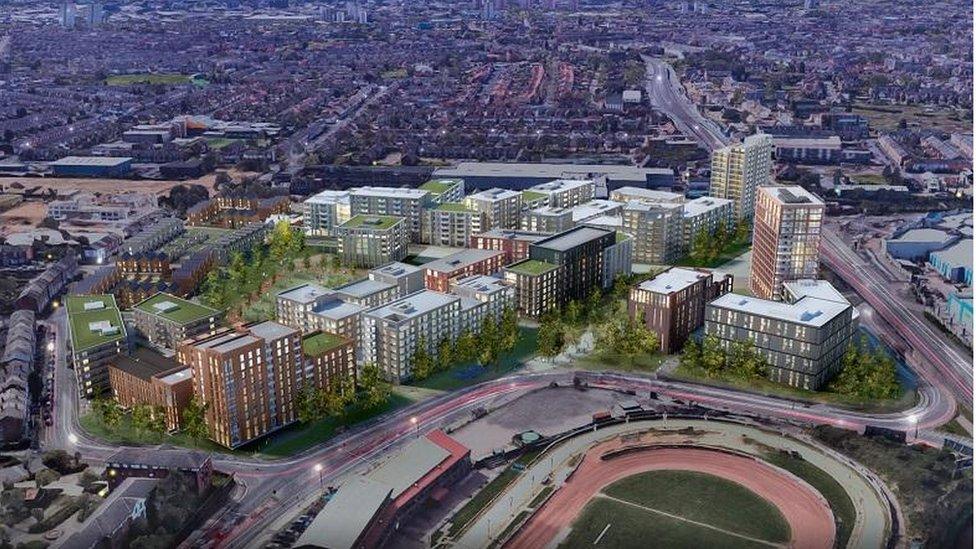
Athletes will no longer be accommodated at the Perry Barr sight due to construction delays and rising costs
A decision to scrap a £500m athletes' village for Birmingham's Commonwealth Games "is entirely down to the pandemic," the city council said.
It was announced on Tuesday that competitors will be housed in student accommodation rather than Perry Barr.
The development was the part of the games that Birmingham City Council had sole responsibility for.
The housing redevelopment will continue but the council has come under criticism.
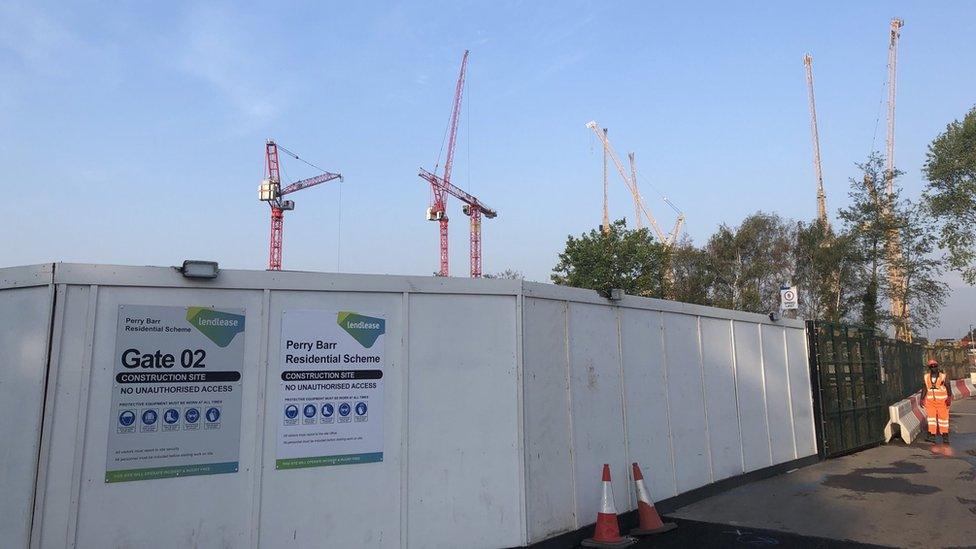
Construction work continues at the site, which aims to provide 5,000 homes in the area
The authority had pledged to build accommodation for up to 6,500 athletes for the 2022 games under its host city contract but said escalating costs and delays due to coronavirus had made meant axing the Perry Barr development was the only way to "de-risk" its delivery of the event.
In a joint briefing with the CEO of Birmingham 2022, Ian Reid, council leader Ian Ward said the decision was "entirely down to the pandemic".
He denied it was a "convenient cover" for other failings as costs lurched £92m over budget and said he would "take issue" with the perception that the council had failed.
However, an "astonishing failure" is what the city's Liberal Democrat leader Jon Hunt branded the decision, as he called for Mr Ward to resign.
Although the Perry Barr redevelopment - with a target of 5,000 new homes - will still go ahead, critics of the council have said it needs to consider "whether the plans they've committed the taxpayer to are really worth the money".
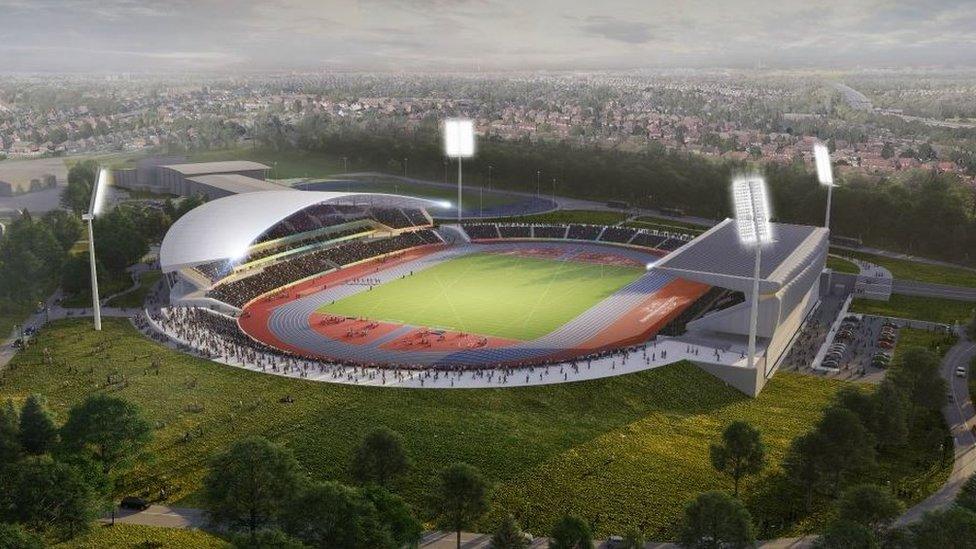
The Perry Barr village site is just over a mile from a revamped Alexander Stadium, which will host events
Robert Alden, leader of the Conservative opposition, urged particular attention be paid to transport proposals "which no longer work".
Mr Reid and Mr Ward said investment in infrastructure would still be delivered but work was under way to "update" the plans.

Analysis by Kathryn Stanczyszyn, political reporter BBC WM
It's not the norm - but it de-risks a project that had turned very risky indeed.
Athletes won't be within earshot of the roar of the crowds at Alexander Stadium, but they will be in places with plenty of room and great facilities.
Birmingham City Council's adamant that this is a coronavirus compromise but the fact is timescale and budget were already tighter than tight.
A projected £90m increase to the original budget and problems with getting contracts signed off took a toll.
Now there's a little more breathing space - but eyes will be on how the Perry Barr legacy project costs are managed.

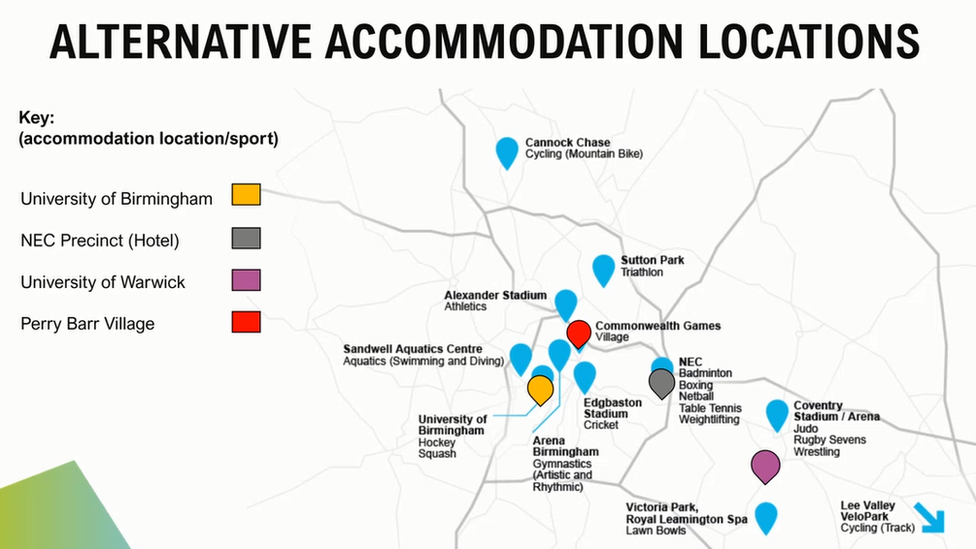
Athletes will instead be housed in student accommodation around the West Midlands
Organisers also offered reassurances that although athletes would be housed in existing accommodation at the University of Birmingham, Warwick University and the NEC, ensuring it was suitable for para-athletes was "a priority".
Mr Reid acknowledged not having a purpose-built athletes' village was disappointing, but said the solution was still "world class".

Follow BBC West Midlands on Facebook, external, Twitter, external and Instagram, external. Send your story ideas to: newsonline.westmidlands@bbc.co.uk , external
- Published30 January 2020
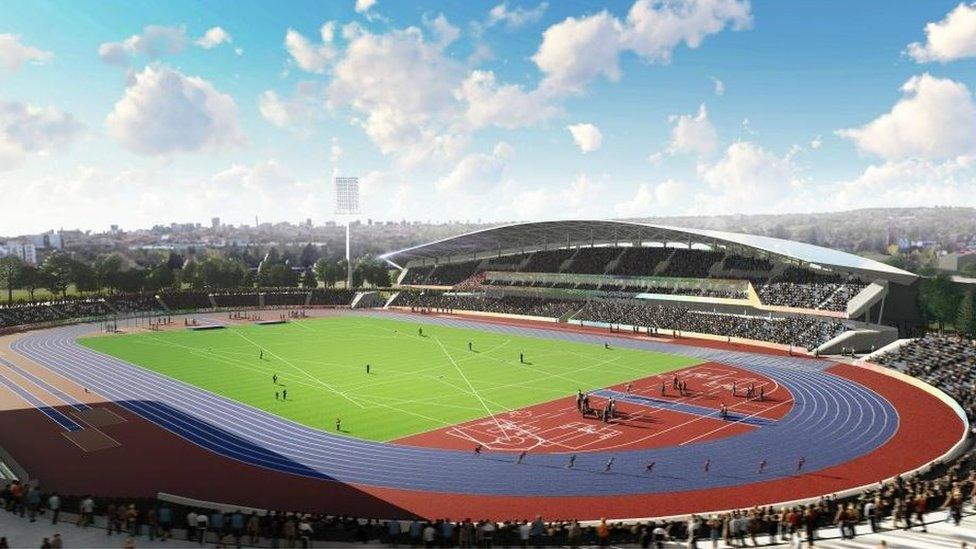
- Published2 January 2020

- Attribution
- Published25 June 2019
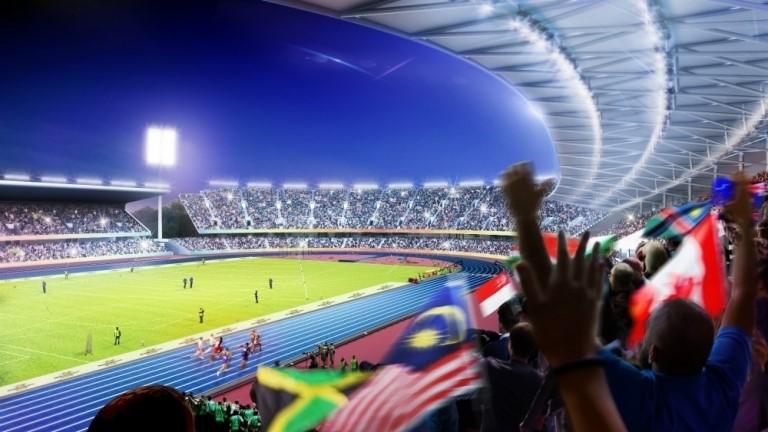
- Published26 June 2019
